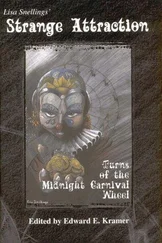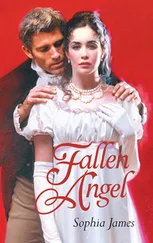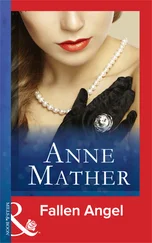‘I think she’s like me in other ways.’ Angel’s voice was dreamy. ‘In personality, I mean. Much more so than the others. She’s our fourth, of course. I knew the fourth would be significant.’
‘How do you mean?’
‘Because –’ Angel broke off. ‘What was that about a conjuring set?’
‘Lucy wants one. Perhaps I could buy it and give it to her this afternoon.’
Angel stared at him, her spoon poised halfway between the bowl and her mouth. ‘Lucy isn’t like the others. Do you understand me?’
‘Yes.’ He dropped his eyes: facing that blue glare was like looking at the sun. ‘I think so.’
Eddie didn’t understand: why wasn’t Lucy like the others? She was no more attractive than Chantal or Katy, for example, and probably less intelligent, certainly less articulate, than Suki. And why should the fact that Lucy was their fourth visitor be significant?
As he spread a thin layer of low-fat sunflower margarine on his wholemeal toast, he thought that Angel resembled one of those rich archaeological sites which humans have occupied for thousands of years. You laboriously scraped away a layer only to find that there was another beneath, and another below that, and so the process went on. How could you expect to understand later developments if you did not also know the developments which had preceded them and shaped them?
Angel dabbed her mouth with her napkin. ‘If you want to give Lucy a present, why don’t you buy her a doll?’
‘But she wants the conjuring set.’
‘A doll might distract her from that little bundle of rags. What does she call it?’
‘Jimmy.’
The intercom crackled softly.
Angel cocked her head. ‘Hush.’
A cat-like wail drifted into the kitchen.
Jenny Wren had liked dolls, especially the sort which could be equipped with the glamorous accessories of a pseudo-adult lifestyle. Her real name was Jenny Reynolds but Eddie’s father always called her Jenny Wren. She had been overweight, with dark hair, small features and a permanent look of surprise on her face.
Her father was a builder in a small way. He and his wife still lived in one of the council flats on the estate behind Rosington Road. The Reynoldses’ balcony was visible above the trees from the garden of number 29. When Eddie discovered which flat was theirs, he realized that the woman on the balcony whom he and Alison had seen, the woman who stared at the sky over Carver’s, must have been Mrs Reynolds.
Jenny Wren was their only child, about two years older than Eddie. She started to come to the Graces’ house in the summer of 1971, the Alison summer, always bringing her favourite doll, who was called Sandy. Alison used to laugh at Jenny Wren and Eddie had joined in, to show solidarity.
Eddie did not know how Jenny Wren had come to his father’s attention. Stanley did house-to-house collections for several charities and this helped to give him a wide acquaintance. Or Mr Reynolds might have done some work on the house, or his father might have advised the Reynoldses on financial matters. Stanley might even have stopped Jenny Wren on the street. Eddie had witnessed his father’s technique at first hand.
‘You’ve got a dolly, haven’t you?’ Stanley would say to the girl. ‘What’s her name?’ Eventually the girl would tell him. ‘That’s a pretty name,’ he would say. ‘Did you know I make dolls’ houses? Do you think your dolly would like to come and see them? We’d have to ask Mummy and Daddy, of course.’
If there were concerned parents in the picture, as with the Reynoldses, he took care to reassure them. ‘Yes, Eddie likes a bit of company. He’s our only one, you know, and it can get a bit lonely, eh? Tell you what, I’ll get my wife to give you a ring and confirm a time, shall I? Around tea time, perhaps? I know Thelma likes an excuse to bake a cake.’
Thelma lent her authority to the invitations, though they sometimes made it necessary for her to talk to neighbours, an activity she detested. But she had as little as possible to do with the girls as soon as they had crossed the threshold of 29 Rosington Road. Among themselves, Stanley and Thelma referred to the girls as ‘LVs’, which stood for ‘Little Visitors’.
The proceedings usually opened with tea around the kitchen table. This would be much more lavish than usual. There would be lemonade or Coca-Cola, chocolate biscuits and cake.
‘Ah, tea.’ Stanley would bunch up his pale cheeks in a smile. ‘Splendid. I’m as hungry as a hunter.’
During the meal Thelma spoke only when necessary, though as usual she would eat greedily and rapidly. Afterwards Thelma and Eddie cleared away while Stanley took the LV down to the basement, closing the door behind them. Eddie and Thelma carried on with their lives as normal, as though Stanley and a little girl were not in the basement looking at a dolls’ house. When it was time for the LV to go home, Thelma and Eddie often walked her back to her parents, usually in silence, leaving Stanley behind.
If all had gone well, there would be other visits. Then Stanley would introduce the subject of his second hobby, photography. As ever, he was meticulously careful in his handling of the parents. Would they mind if he took a few photographs of their daughter? She was very photogenic. There was a national competition coming up, and Stanley would like – with the parents’ agreement, of course – to submit a photograph of her. Perhaps the parents would like copies of the photograph for themselves?
It was after Alison moved away that Stanley Grace first asked Eddie into the basement when one of the little visitors was there.
‘I’d like a two-headed shot in the big chair,’ he explained to the space between Thelma and Eddie. ‘Could be rather effective, with one fair head and one dark.’
Eddie was excited; he was also pleased because he interpreted the invitation as a sign that he had somehow earned his father’s approval. The LV in question was Jenny Wren.
He remembered that first afternoon with great clarity, though as so often with memories it was difficult to know whether the clarity was real or apparent. He and Jenny Wren had been too shy to talk much to each other, and in any case, the two-year age gap between them was at that time a significant barrier. His father posed them in the low Victorian armchair, which was large enough to hold both children, their bodies squeezed together from knee to shoulder. He arranged their limbs, deftly tweaking a leg here, draping an arm there. The camera was already mounted on its tripod.
‘Now try and relax,’ Stanley told them. ‘Pretend you’re brother and sister. Or very special friends. Lean your head on Jenny’s shoulder, Eddie. That’s it, Jenny Wren: give Eddie a nice big smile. Watch the birdie now.’ His father squinted through the viewfinder. ‘Smile.’
The shutter clicked. Jenny Wren’s breath smelled sweetly of chocolate. Her dress had ridden up almost to the top of her thighs. The rough fabric of the upholstery rubbed against Eddie’s bare skin and made him want to scratch. He remembered the musty smell of the chair, the essence of a long and weary life.
‘And again, children.’ Click . ‘Very good. Now hitch your legs up a bit, Jenny Wren: lovely.’ Click . ‘Now, Eddie, let’s pretend you’re kissing Jenny Wren’s cheek. No, not like that: look up at her, into her eyes.’ Click . ‘Now let’s have some with just you, Jenny Wren. How about a chocolate first?’
It wasn’t all photographs. Stanley encouraged them to examine the dolls’ house. He allowed Jenny Wren to push her doll Sandy about the rooms and sit her in the chairs and lie her on the beds, even though Sandy was far too large for the house and Jenny Wren’s movements were so poorly coordinated that the fragile furniture was constantly in danger. The children helped themselves from the large box of chocolates. Eddie ate so many that he felt sick. At last it was time for Jenny Wren to go home.
Читать дальше












